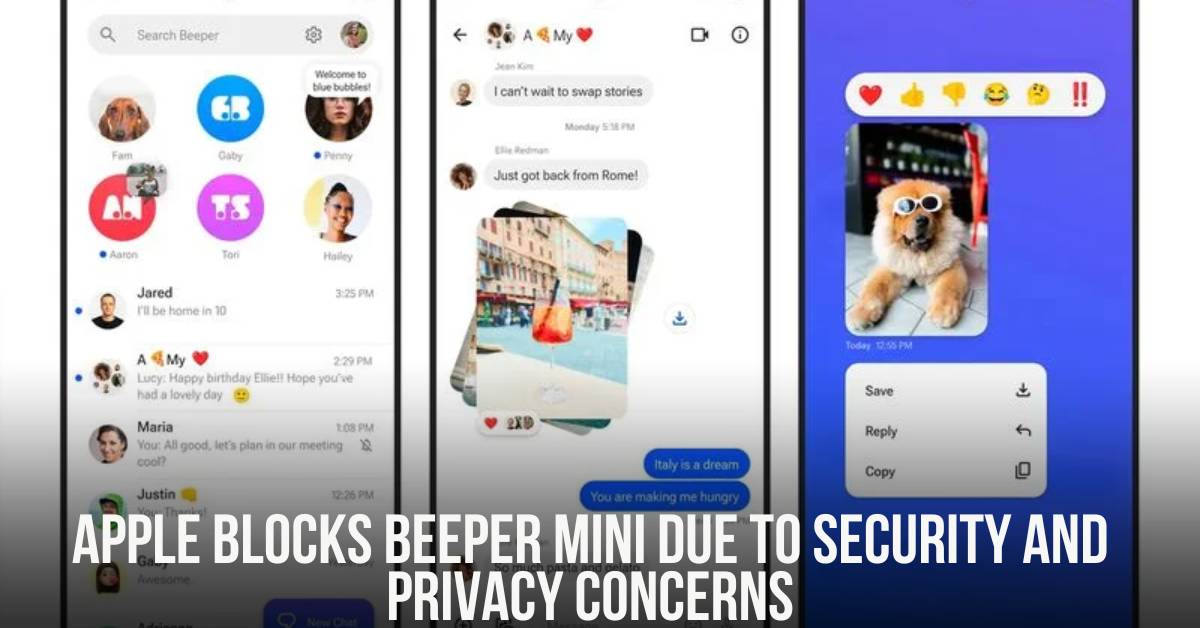Apple has taken steps to block Beeper Mini, a cross-platform messaging app, citing potential risks to user privacy and security. The move is explained by concerns over the techniques employed by Beeper Mini, which involved intercepting the iMessage protocol using Apple’s push notification service, posing security risks such as metadata exposure and vulnerability to spam and phishing attacks.
Key Points:
- Apple’s Privacy and Security Focus: Apple emphasizes its commitment to user privacy and security, stating that its products and services incorporate industry-leading technologies to give users control over their data. The decision to block Beeper Mini is framed as a measure to protect users from potential risks.
- Blocking Techniques: Apple explains that it took steps to block techniques used by Beeper Mini that exploit fake credentials to gain access to iMessage. According to Apple, these techniques presented significant risks to user security and privacy, including metadata exposure and susceptibility to unwanted messages, spam, and phishing attacks.
- Beeper Mini’s Operation: Beeper Mini operated by intercepting the iMessage protocol using Apple’s push notification service, convincing Apple’s servers that it was an authentic Apple device. Apple characterizes this method as using “fake credentials,” which raised concerns about the security and privacy of user data.
- Security and Privacy Risks: Apple expresses concerns about the security and privacy risks posed by Beeper Mini, despite Beeper’s claims that its process did not compromise encryption or privacy. Apple highlights the potential for unwanted messages, spam, and phishing attacks as key risks.
- Beeper CEO’s Response: Beeper CEO Eric Migicovsky expresses willingness to cooperate with Apple for a security review of Beeper’s code. While challenging Apple’s decision, Migicovsky emphasizes the importance of secure communication channels between iPhone and Android users.
- Secure Communication Challenges: Migicovsky challenges Apple’s decision by highlighting the limitations of unencrypted SMS for cross-platform messaging. Despite Apple’s stance, Migicovsky remains committed to exploring solutions that could enable the return of Beeper Mini or similar services.
You may be interested in our other articles about technology if you enjoyed this one:
- Windows 11 KB5031455 Update Woes: Installation Failures and Game Crashes
- How to Unlock UK Netflix with the Best VPN?
The clash between Apple and Beeper underscores the ongoing tension between platform providers and third-party developers seeking to offer cross-platform services. Apple’s priority on user privacy and security is a central theme in its decision-making processes, and it remains to be seen how this incident will influence the broader landscape of third-party messaging apps on Apple’s ecosystem.



